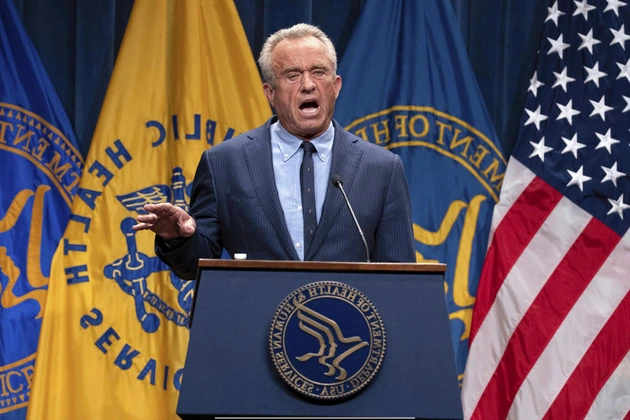
Health Secretary Robert F. Kennedy Jr. plans to fire all 17 members of the panel that advises the Centers for Disease Control and Prevention on vaccines, he said Monday.
“The committee has been plagued with persistent conflicts of interest and has become little more than a rubber stamp for any vaccine,” Kennedy wrote in an opinion piece published in The Wall Street Journal. He wrote that the decision is meant to restore faith in vaccines.
Termination Notices Sent
Nearly two hours after Kennedy’s column was published, members of the panel received termination notices from the CDC, according to a copy of the email seen by POLITICO.
“Per the June 9, 2025 directive from the Secretary of the U.S. Department of Health and Human Services, this email serves as a formal notice of your immediate termination as a member of the Advisory Committee on Immunization Practices (ACIP),” the notice reads.
ACIP Updates
ACIP votes on updates to the CDC’s vaccine schedule. The CDC director has the power to overrule those recommendations, but rarely does. Kennedy, a longtime vaccine skeptic, will now be able to select replacements for all members, who usually serve four-year terms.
New Members for Upcoming Meeting
The committee, which is scheduled to meet from June 25-27 to consider several recommendations, will still meet then, but with new members, an HHS spokesperson told POLITICO.
Public Trust Restoration
Kennedy’s decision marks one of his most aggressive moves to date to overhaul how the government makes decisions about vaccines. He cited “putting the restoration of public trust above any pro- or anti-vaccine agenda.”
The decision also seemed to buck promises that he made to Sen. Bill Cassidy, chair of the Health, Education, Labor and Pensions Committee, to win confirmation as HHS secretary. Kennedy told Cassidy that he would “maintain the Centers for Disease Control and Prevention’s Advisory Committee on Immunization Practices without changes,” the Louisiana Republican said before voting to confirm.
Response and Reactions
Cassidy pushed back on the decision, writing on X: “Of course, now the fear is that the ACIP will be filled up with people who know nothing about vaccines except suspicion. I’ve just spoken with Secretary Kennedy, and I’ll continue to talk with him to ensure this is not the case.”
Cassidy told reporters at the Capitol that he spoke with Kennedy twice on Monday, and that the assurance he’d won from the now-secretary to win his confirmation vote concerned ACIP process rather than membership.
Concerns and Criticisms
Even so, Susan Collins (R-Maine), a member of the HELP Committee and Appropriations Committee chair, was taken by surprise when asked about the move.
“I did not know that had happened. It must have been very recent. I don’t know who serves on those committees but it seems to be excessive to ask for everybody’s resignations,” Collins told reporters.
POLITICO first reported in February that Kennedy was considering replacing some of the panel’s members with his own selections.
Expert Opinions
Public health experts were swift to express their concerns.
“This is absolutely unprecedented. RFK Jr. has many levers at his disposal to influence vaccine policy in the U.S., each with varying degrees of impact. But this move is a red-alert, level 4 alarm,” said Katelyn Jetelina, an epidemiologist who’s consulted for the CDC.
Dr. Paul Offit, former ACIP member and director of the Children’s Hospital of Philadelphia’s Vaccine Education Center, said the panel’s recommendations have yielded significant public health wins — such as nearly eliminating or substantially decreasing hospitalizations of babies with illnesses caused by rotavirus and respiratory syncytial virus.
“Can we trust an ACIP of people that RFK Jr. deems adequate to make decisions?” said Offit, who currently serves on the FDA’s external vaccine panel. “The end result of all of this is chaos and distrust.”
Bruce Scott, president of the American Medical Association, raised similar concerns.
“With an ongoing measles outbreak and routine child vaccination rates declining, this move will further fuel the spread of vaccine-preventable illnesses,” Scott wrote in a statement.











